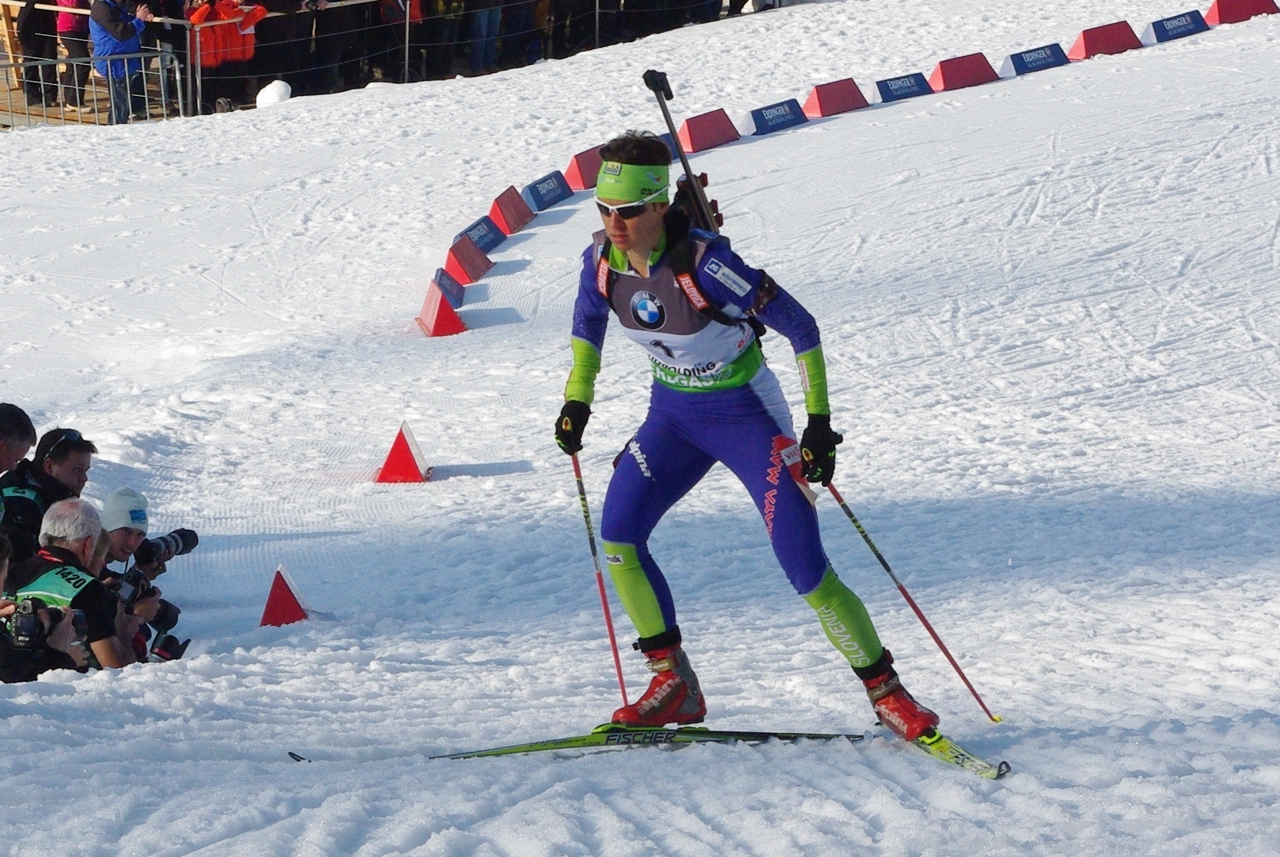
The International Olympic Committee (IOC) recently finished re-testing stored urine samples from the 2010 Olympics in Vancouver, Canada. The goal was to use new analytical methods to detect substances which were not detectable back in 2010.
Of the more than 1,000 samples re-analyzed, only those belonging to a single athlete were found to be positive for prohibited substances, the IOC announced earlier this month.
That athlete is now revealed to be Slovenia’s Teja Gregorin, a biathlete who finished fifth in the mass start in Vancouver. Reportedly, three different samples belonging to Gregorin tested positive, all for Growth Hormone Releasing Factor-2 (GHRP-2), a growth hormone releasing peptide. Gregorin has been provisionally suspended by the International Biathlon Union while her case proceeds.
“I accept temporary suspension,” Gregorin said in a press conference organized by the Slovenian ski federation, according to a translation. “I will participate in the follow-up proceedings, but I ask for understanding because the World Anti-Doping Code prohibits public comments on ongoing cases. I sincerely apologize to all who have been affected my actions in any way.”
Gregorin read from a prepared statement and did not take questions from the press.
This entire class of substances were banned by the 2010 WADA Prohibited List in section S2, which bans “The following substances and their releasing factors” before listing growth hormones. This was later clarified; the 2017 Prohibited List explicitly lists GHRP’s, prohibiting “Growth Hormone (GH) and its releasing factors including… GH-Releasing Peptides (GHRPs), e.g. alexamorelin, GHRP-6, hexarelin, and pralmorelin (GHRP-2).”
GHRP’s are not the same as human growth hormone (hGH), a widely discussed treatment in professional sports and one for which Estonian cross-country skier Andrus Veerpalu tested positive.
Instead, these peptides spurs the body’s own production of growth hormone. As such, they improves health, recovery, the immune system, and anti-aging. GHRP-2 is a synthetic drug used to treat growth hormone deficiency. In a doping context, it is known to help maintain a lower level of body fat.
An Olympic champion cyclist, Samuel Sanchez of Spain, previously tested positive for GHRP-2, as did three Chinese weightlifting athletes when anti-doping samples from the 2008 Beijing Olympics were re-tested by the IOC.
Gregorin finished ninth in both the sprint and pursuit in Vancouver.
Four years later in Sochi, she earned bronze in the pursuit at the 2014 Olympics with a determined and gutsy long sprint finish. She also placed fourth in the mass start there.
A team veteran, Gregorin also competed in the 2006 Olympics. She won silver in the 15 k individual at 2009 World Championships and later contributed to a silver-medal mixed relay effort for Slovenia at 2012 World Championships along with Andreja Mali, Klemen Bauer, and Jakov Fak.
Chelsea Little
Chelsea Little is FasterSkier's Editor-At-Large. A former racer at Ford Sayre, Dartmouth College and the Craftsbury Green Racing Project, she is a PhD candidate in aquatic ecology in the @Altermatt_lab at Eawag, the Swiss Federal Institute of Aquatic Science and Technology in Zurich, Switzerland. You can follow her on twitter @ChelskiLittle.



